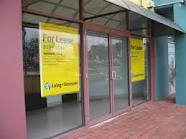 You might pay too much for commercial real-estate, but it will probably still bring in a reasonable return.
You might pay too much for commercial real-estate, but it will probably still bring in a reasonable return.
You might forget to look into the taxes and take an extra few years for the ratchet clauses in your leases to catch up.
You might find that the tin roof leaks, but it should only cost you $’000’s to fix and time and tax deductions (and rental increases) will help to catch up on that.
No. The biggest mistake in commercial real-estate is the one that Tyler is about to make:
I’ve been thinking quite a bit about commercial real estate lately, but have been so discouraged with all of the vacant properties in my area (and I am a bit skittish about looking outside my area, as I don’t like buying something I’ve never seen in person). My residential properties, though, have been consistently producing income in both good times and bad.
With the vacancies, compressing cap rates, and the headaches of financing, maybe it’s just not the right time to jump into the commercial space.
Where’s the mistake?
After all, Tyler has identified a cyclical low point in the market … the sort of market that Warren Buffett salivates over:
We simply attempt to be fearful when others are greedy and to be greedy only when others are fearful.
But, Warren is talking about public markets.
These are the kind of markets that are driven by short-term investor sentiment i.e. the stock market.
When the market is ‘down’, it usually corrects to a long-term mean of an 11% pre-tax return [AJC: it remains to be seen what will happen with the current down market, but it’s only a matter of time – who knows how long – before it corrects].
So, then the market is fearful – and, stock prices drop – Warren jumps in, knowing full-well that (sooner or later) things will correct themselves and he’ll be sitting on windfall gains.
That accounts for 30% or 40% (my estimate) of his $40b fortune …
…. it’s the other part – the major part – of his fortune that holds the real lesson for Tyler:
You see, what most people don’t realize is that Warren Buffett is actually a business owner.
The main purpose of Berkshire Hathaway (Warren Buffett’s company) is to buy operating businesses. Here, he doesn’t look for short-term, contrarianism …. he simply looks for solid businesses that have been around for a long time already, and will be around for another 100 years.
And, he buys them, if he can get a discount to what he believes is fair market value. The bigger the discount, the more likely he is to buy.
[AJC: contrary to popular belief, Warren doesn’t just buy bargains … he creates them! For example, he bought Sees Candy for $30m when he thought it was only worth $25m at most. However, it was Warren and his team who turned it into a multi-billion dollar business, making it a bargain at any original purchase price]
And, Tyler, if residential real-estate is like speculating in stock (it is), then commercial real-estate is exactly like buying a business …
… and, what’s the biggest risk if you own a business?
It’s simply that you will lose customers!
No customers, no sales. No sales, no revenue. No revenue, no profit. No profit, and you go broke 🙁
It’s much the same with commercial real-estate:
Your biggest risk is the risk of vacancy.
It can take a long time to find a tenant in commercial real-estate: businesses simply do not expand, contract, or move as often as a family looking to, say, upsize their home.
And, that’s also the attraction: once you have a commercial tenant, they tend to stick around.
So, Tyler, even though bargains no doubt abound in your area, it looks like you, too, may struggle to find a tenant.
Either look farther afield, or stick to residential R/E until you see signs of improvement in vacancy rates for the specific type/s of commercial R/E that you are interested in.
Alternatively, find a tenant first (make friends with the rental realtors in your area) then buy a building to suit. Or, knock on the doors of all the businesses in your area and see who wants to upsize and find/buy the building for them.
Another strategy, when talking to the business owners in your area, is to find the ones who own their own buildings and see who wants to “sell and lease back” to free up some additional cash for their business.
Any way you look at it, for success in commercial real-estate, the tenant is king.





Wow! I did not expect an explanation of this detail and magnitude! Thank you very much, Adrian. I just spoke with a friend last week about his company “selling and leasing back” it’s building, but I didn’t think that was a regular occurrence!
@ Tyler – It’s far from a regular occurrence, which is why I mention it here 😉
Thanks for asking the questions that allowed me to write this post!